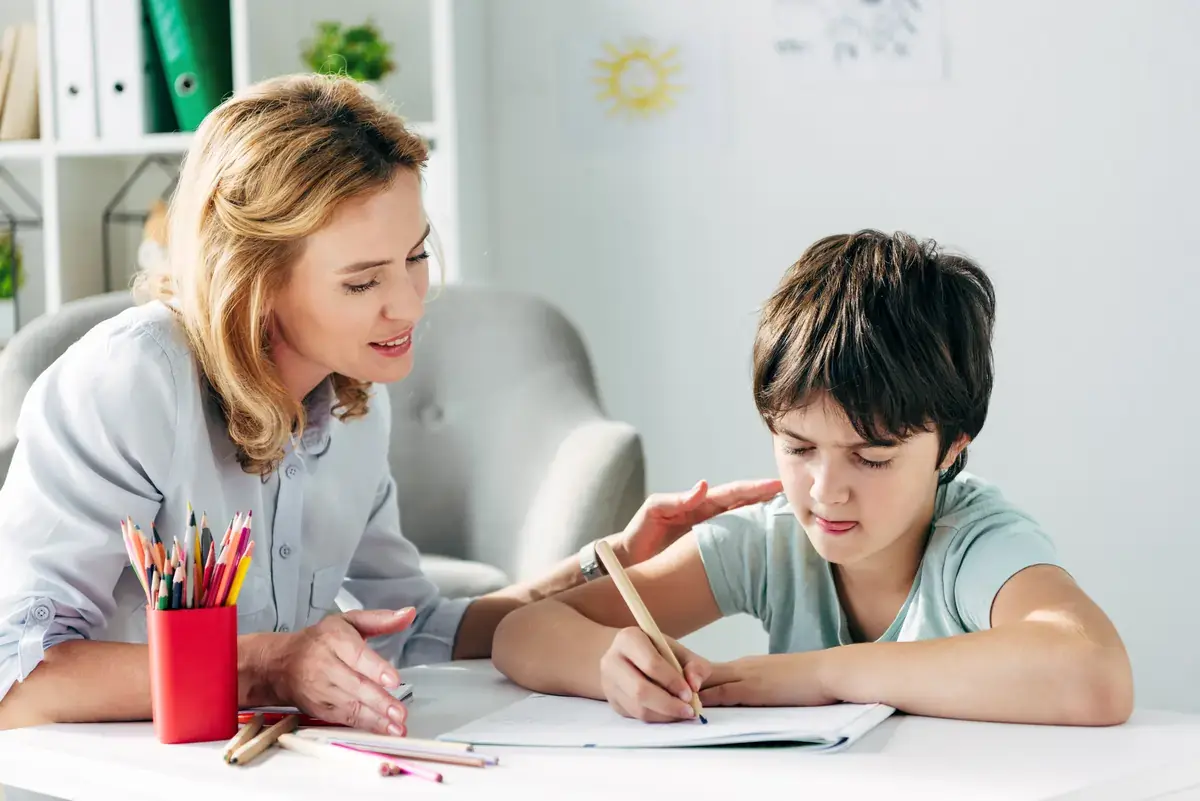How to Express Romantic Love: Effective and Heartfelt Gestures
All the world celebrates romantic love, and people from all walks of life look for ordinary moments and extraordinary ones to express love to their...
4 min read
![]() Williamsburg Therapy Group
:
Dec 11, 2023 2:53:02 PM
Williamsburg Therapy Group
:
Dec 11, 2023 2:53:02 PM

Neurological testing is most simply defined as a series of tests designed to see how well your brain works. These tests look at a number of mental functions, such as reading, attention, learning, language use, processing speed, mood, and behavior.
There are several reasons a healthcare provider may order neuropsychological testing for children or young adults.
What's Covered in a Children's Neuropsychological Test?
How Are Children's Neuropsychological Evaluations Performed?
What Are Signs Your Child May Benefit From Neuropsychological Testing?
What Should I Bring to My Child's Evaluation?
What Happens After Testing is Completed?
Pediatric Neuropsychologists in Brooklyn: Williamsburg Therapy Group
There are several tests of mental function that are completed during the evaluation process. Through these tests, the pediatric neuropsychologist and other professionals can determine:
The test results can be used to diagnose several conditions in children, including learning disorders, traumatic brain injury, brain tumors, and epilepsy.
If parents or professionals involved in a child's life (such as teachers or a pediatrician) notice that there are indicators such as difficulty with social interactions, change in personality, difficulty concentrating, insufficient academic achievement, developmental disabilities, changes in the child's behavior, and other indications of impaired brain function, they can get a referral for neuropsychological evaluations.
Pediatric neuropsychologists will begin by asking for previous evaluations, school records (including previous school testing and report cards), the child's medical records, and any other relevant information that can help with the evaluation process. You may also be asked to fill out surveys for behavioral and psychological history, and at the first session, you may be asked about any concerns you may have about your child's cognitive functioning.
After this initial session, which allows the neuropsychologist to know which testing will be most appropriate for your child, they will then either be scheduled for a test day or given the tests at that same appointment.
A neuropsychological evaluation may look something like this:
Testing days look different depending on what your child's needs are. Tests can be mostly geared toward academic skills or fine motor skills. They may involve clinical psychology testing or focus on brain structures. Your child may undergo testing that encompasses physical, behavioral, and psychological factors. This will be determined in the initial session through an interview and the evaluation of medical documents.
Often personnel from the school will be involved in the process. The neuropsychologist may wish to complete observation in the child's school setting as a part of their evaluation. They may team up with licensed psychologists within the school system to get a better picture of the child's history. School personnel will also likely be, with the parent's permission, one of the recipients of the evaluation results for the child.
Some signs to look for to determine whether they may benefit from a neuropsychological evaluation include:
Always check with your psychologist first, but some common items that should be brought to a neuropsychological evaluation include any medical aids or assistive devices (such as hearing aids or AFOs), a written report by school personnel, records from other professionals that pertain to your child (such as medical records, psychological history, behavioral evaluation, report cards, school evaluation, etc.), and any other records that will help you answer questions posed by the neuropsychologist.
Once your provider has completed the testing sessions and has evaluated the results, the parents should receive a report and possibly a treatment plan for the child. These are standardized tests and may take a couple of weeks to interpret. The neuropsychologist may schedule a feedback session with the parents to go over any possible questions and explain any specifics found in the evaluation.
They will be able to share if they've found any signs of a medical condition, such as attention deficit hyperactivity disorder or executive functioning disorder. In the feedback session, the parent or members of the care team can ask for re-evaluations and learn of any associated recommendations they may need to address at school or at home. These recommendations will vary based on the specific needs of the child.
Scheduling a neuropsychological evaluation for your child can be intimidating. While it's normal to worry about the results, rest assured that having a clear picture of your child's needs can be empowering. Many parents find that neuropsychological testing for their children is the first step in getting the answers they need and moving forward with the treatment plan that helps them succeed in school and life.
If you have a recommendation from a doctor for a pediatric neurological evaluation, or if you suspect your child may need one, it's time to talk to a licensed therapist or neuropsychologist.
Williamsburg Therapy Group is home to Brooklyn's best pediatric neuropsychologists, who maintain a high level of availability so you can get the care your child needs as quickly as possible.
Give us a call, and our patient coordinator will help you book your first appointment.

All the world celebrates romantic love, and people from all walks of life look for ordinary moments and extraordinary ones to express love to their...

What is relationship burnout or relationship fatigue? Many of us have heard of burnout, but we often connect it to professional life and the problems...

In today's digital age, so many of us are locked into our mobile devices each and every day, which can have a negative impact on our mental...